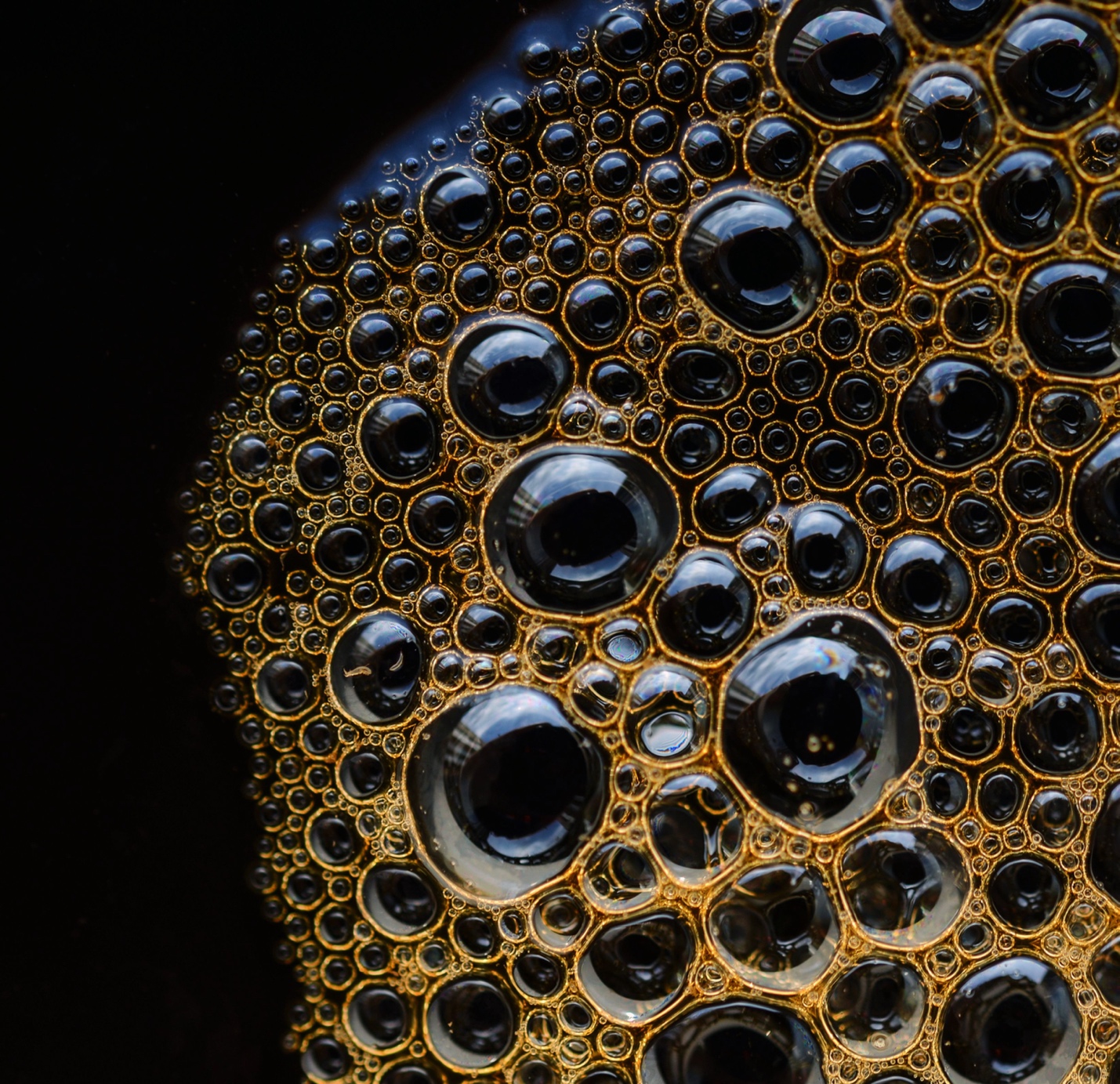©2014-2026 Penscott Management Corporation. All rights not expressly granted herein are reserved. The APO E Gene Online Program™ and the APO E Gene Program™ are part of the APO E Gene Diet®, which is a registered trademark of Penscott Corporation.
Information on this website is intended for informational purposes and is not a substitute for medical advice, diagnosis, or treatment. Learn more.
Coffee, a ubiquitous beverage loved for its rich flavor and energizing kick, has found a new ally in recent years, decaffeinated coffee. As our understanding of the effects of caffeine deepens, decaffeinated coffee has emerged as a compelling alternative, offering a range of potential health benefits without the concerns associated with caffeine consumption. For individuals with the APO E gene, particularly those carrying the APO E E4 allele linked to Alzheimer's and Parkinson’s disease risk, the relationship between decaffeinated coffee and caffeine sensitivity takes on heightened significance. This information delves into the benefits of decaffeinated coffee and explores the risks associated with caffeine for those with the APOE E4 gene variant.

Decaffeinated Coffee: A Flavorful and Healthful Alternative
Decaffeinated coffee, often referred to as "decaf," is crafted through a meticulous process that removes the majority of caffeine while preserving the intricate flavors and bioactive compounds found in coffee beans. This means that decaf coffee retains many of the potential health benefits associated with coffee consumption, including antioxidants, polyphenols, and essential nutrients. These compounds have been linked to various health advantages, such as reduced risk of certain chronic diseases, improved cognitive function, and antioxidant protection against cellular damage.
Decaf coffee offers a thoughtful choice for APO E gene carriers, particularly those with the APO E E4 variant. This genetic profile is linked to Alzheimer's risk and caffeine sensitivity. Opting for decaf allows individuals to enjoy coffee's taste and potential health benefits without exacerbating cognitive concerns. Decaf coffee provides a satisfying option that aligns with genetic considerations, promoting cognitive well-being and offering a mindful approach to enjoying the pleasures of coffee.
Decaf coffee boasts a portfolio of bioactive compounds, including antioxidants and polyphenols, which contribute to its potential health perks. These compounds have been linked to reduced risk of chronic diseases, such as type 2 diabetes and certain cancers, as well as potential protection against cellular damage.
These natural compounds are known for their health-boosting properties. Antioxidants combat oxidative stress, protecting cells from damage and potentially reducing the risk of chronic diseases. Polyphenols, on the other hand, have been associated with improved heart health, better blood sugar control, and even cognitive benefits.
In the realm of cognitive well-being, decaffeinated coffee is particularly appealing. Emerging research suggests it may contribute to preserving brain health and reducing the risk of cognitive decline, possibly due to its rich antioxidant content.
Decaf coffee is a testament to the evolving landscape of coffee consumption, offering a thoughtful and health-conscious alternative for those who cherish the experience of coffee without the caffeine-induced effects. It holds unique benefits for individuals with the APO E gene, particularly APO E E4 carriers. Decaf coffee addresses both their caffeine sensitivity and increased risk of Alzheimer's, allowing them to enjoy the flavors of coffee without the potential cognitive risks linked to caffeine while retaining regular coffee’s antioxidants and health benefits. APO E E4 carriers can indulge in the pleasure of coffee while minimizing potential adverse effects on cognitive function and sleep.
This choice exemplifies how personalized choices can intersect with genetic insights to promote overall health and mindful consumption.
Caffeine Sensitivity in APO E Gene Carriers

The APOE gene plays a pivotal role in lipid metabolism and has garnered attention due to its association with Alzheimer's disease risk with the APO E E4 allele linked to an elevated susceptibility to the disease. Emerging research suggests that individuals with the APO E E4 allele may also exhibit heightened sensitivity to caffeine. This sensitivity stems from caffeine's potential to impact sleep patterns, exacerbating cognitive decline – a phenomenon that may be more pronounced in APO E E4 carriers.
Decaffeinated Coffee: The Prudent Choice for APO E E4 Carriers

For individuals with the APO E E4 allele, decaffeinated coffee emerges as a favorable choice. By opting for decaf, individuals can enjoy the flavors and potential health benefits of coffee without the potential drawbacks of caffeine. This includes minimizing the risk of disrupted sleep patterns and cognitive impairment associated with caffeine sensitivity in APO E E4 carriers.
The Cognitive Connection: Caffeine, APO E E4, and Alzheimer's Risk
Caffeine's impact on cognitive function is a key consideration for individuals with the APO E E4 allele. Research suggests that APO E E4 carriers may be more vulnerable to caffeine's effects on cognitive decline and neurodegeneration. By choosing decaffeinated coffee, APO E E4 carriers can potentially mitigate this risk while still reaping the cognitive benefits associated with coffee consumption.
Pay Attention: Choosing Water vs Chemical Process Decaf

While decaf coffee offers an excellent option for APO E gene carriers seeking the flavors of coffee without caffeine-related concerns, the method by which coffee is decaffeinated matters. Opting for decaffeinated coffee processed using the water method provides additional benefits. Water process decaf retains the intricate flavors and antioxidants of coffee beans without the use of chemicals. For APO E gene carriers, this is especially valuable, as the APO E E4 variant is linked to potential sensitivity to certain compounds. By choosing water-processed decaffeinated coffee, individuals can savor the rich taste and potential health benefits of coffee, while aligning with their genetic considerations for a balanced and mindful approach to their well-being.
Embracing Decaf, Balancing Health and Flavor

For individuals with the APO E E4 allele, embracing decaffeinated coffee offers a harmonious solution. It allows them to enjoy the pleasures of coffee while minimizing the potential risks associated with caffeine sensitivity. Decaf's retention of antioxidants and polyphenols underscores its potential to contribute to overall health and well-being without triggering unwanted cognitive effects.
Cultivating a Caffeine-Conscious Approach

For those with the APO E E4 allele, a caffeine-conscious approach can help strike a balance between savoring the taste of coffee and safeguarding cognitive health. Consider the following steps:
Mindful Moderation
- Limit caffeine intake to avoid potential cognitive disturbances, opting for decaffeinated options when you can.
Personalized Monitoring
- Pay attention to individual responses to caffeine, adjusting consumption based on how it affects sleep and cognitive function. If you are affected, move to the APO E Gene Kitchen’s Merryvale Decaffeinated Coffee.
Decaf Delight
- Embrace the APO E Gene Kitchen’s Merryvale Decaffeinated Coffee as a go-to choice, benefiting from its healthful compounds while avoiding caffeine-related concerns.
Decaffeinated coffee has risen to prominence as a mindful choice for individuals with the APO E E4 allele. By enjoying decaf, individuals can harness the potential health benefits of coffee without the potential cognitive risks associated with caffeine sensitivity. In this nuanced exploration of coffee consumption, we find a pathway to savoring the rich flavors of coffee while nurturing cognitive health, paving the way for a future where personalized coffee choices align with genetic considerations.
Pamela McDonald FNP
Integrative Medicine Fellow
APOEGeneProgram.com



